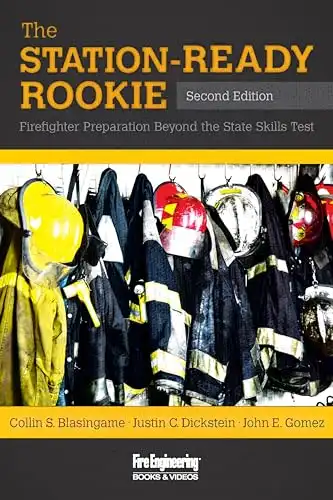We may receive compensation when you click on product links from our partners. For more information, please see our disclosure policy.
Last Updated on July 23, 2023
Occupational health and safety careers prevent worker injuries on the job by ensuring that safety, health, and environmental regulations are followed. Typically, people interested in pursuing these careers need bachelor’s degrees and some on-the-job training to build skills in communications, industrial hygiene, safety and health standards, health hazard identification, handling hazardous materials, and waste management. Degrees often include chemistry, biology, or engineering.
Occupational health and safety careers prevent worker injuries on the job by ensuring that safety, health, and environmental regulations are followed.Click To TweetVarious organizations certify occupational health and safety specialists, including the Board of Certified Safety Professionals and the American Board of Industrial Hygiene. Students must meet coursework, work experience requirements, and pass standardized exams to get these certifications. Master’s degrees may be required for some advanced positions, and many types of careers exist in business, industry, and government.
Occupational Health and Safety Specialist
Occupational health and safety specialists test machinery and inspect lifting devices, scaffolding, and machine guards. These professionals look for hazardous conditions on job sites and try to develop ways to predict possible hazards in products, processes, equipment, and systems. Specialists make sure that protective equipment meets safety standards and that workers use the right devices for each job. These safety workers test potential hazards such as mildew, mold, explosive gases, and toxic vapors, making sure that work areas have proper ventilation systems.
Occupational Health and Safety Technician
Technicians often collect information for occupational health and safety specialists, investigating unsafe working conditions and preparing preliminary remedial recommendations. These safety technicians also assist injured workers after accidents, helping them recover and return to work. Technicians prepare reports for the Occupational Safety and Health Administration, prepare documents for court proceedings, and help develop safety systems and procedural manuals for use on the job. Technicians often work long hours and travel often, and they face many of the same hazards as industrial employees. Management and employees sometimes prove hostile, and technicians and specialists find themselves in adversarial roles. The jobs could become stressful and dangerous, so expert training plays a key role toward success.
Construction and Building Inspectors
Construction and building inspectors work on all types of construction projects such as buildings, dams, bridges, highways, and sewer and water systems. These inspectors make sure that buildings comply with ordinances, local building codes, contract specifications, and zoning regulations. Areas subject to hurricanes and earthquakes often need additional safety measures to protect structures, and building inspectors make sure that construction companies meet all pertinent regulations. Inspectors also test soil and building sites to make sure foundations meet tolerance requirements. Responsibilities include inspecting structural quality, general safety, engineering, and environmental impacts of construction.
Fire Inspector and Investigator
Fire inspectors make sure that companies meet state and local fire codes and work with planners to approve blueprints for new construction projects. Jobs include fire safety inspectors, fire marshals, fire officials, and deputy fire marshals. These professionals must work with contractors, developers, engineers, architects, and fire service personnel. Fire safety staff work to develop fire exit plans, test fire protection systems, and make sure contractors correct code violations. Most of these professionals work with law enforcement agencies, but they could also work for private industry or
While fire academies teach the fundamentals and technical skills of firefighting, “life as a rookie” is an area that is mostly overlooked. Three fire service veterans wrote The Station-Ready Rookie to help new firefighters know and understand what will be expected of them during their first assignment to a fire station and throughout their probationary period.
Agricultural Inspector
Agricultural inspectors work for the Department of Agriculture to inspect, test, and sample soil, monitor fishing, and logging operations, and ensure the health and safety of agricultural commodities and processing equipment. On-the-job training courses help prepare job candidates to work in different regions throughout the state, and workers usually must have the ability to lift and carry up to 100 pounds. Inspectors conduct routine sampling, prepare technical reports, and learn investigative techniques specific to their assigned locations. These professionals must interpret statutory requirements, work well with other people, communicate effectively, and work with minimal supervision.
Occupational health and safety careers prevent harm to property, workers, the public, and the environment. These professionals investigate unsafe working conditions, chemical hazards, and industrial hygiene. In any of these fields, the right training leads to lucrative and rewarding careers.





